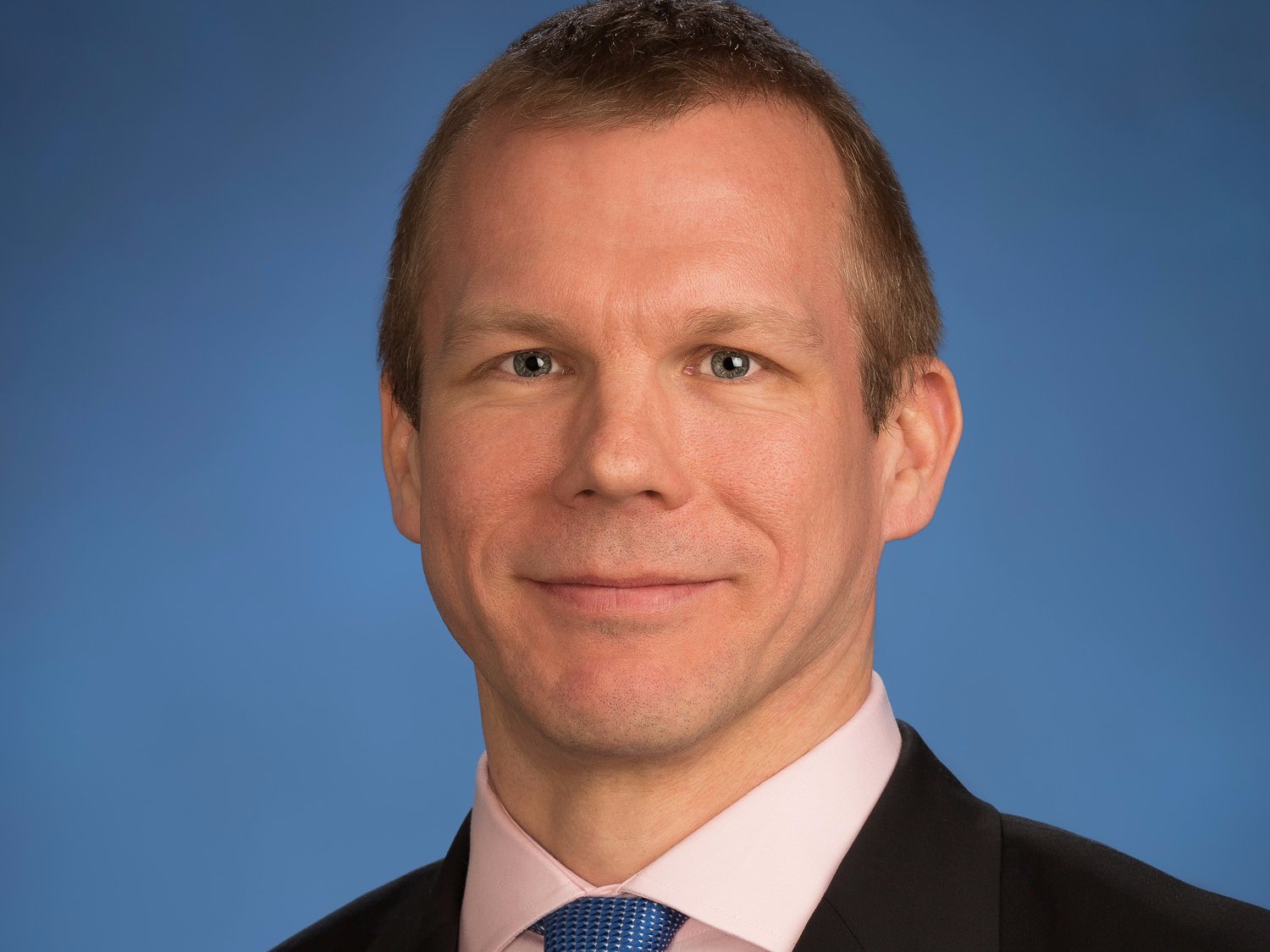Meet the man who turns Goldman Sachs into a “perfect” car.

Hard times have come for investment banks.
Stricter rules for transparency in finance and market reduce trading income, while weak global growth puts all banking business models at risk.
')
One of the ways to adapt to new conditions is to reduce costs by maximizing the automation of repetitive processes.
The problem is finding a balance between automation and reliable security “mechanisms” when no one person is able to control every commercial operation.
In the Goldman Sachs Bank, Damian Sutcliffe, the head of information technology in the EMEA region (Europe, Middle East, Africa) and the global head of the field of operating technologies, solves this problem.
He discusses with “Business Insider” (“BI”) how a bank uses information technology to shape its course in the full uncertainty of the financial world.
Business Insider (BI): What is the main project you are working on?
Damien Sutcliffe (DS) : We can say that the main thing we are focusing on now is providing a broader dimension of measurement and automation for the company. This includes a way to process transactions, a way to evaluate them (this is done in an ever-increasing amount algorithmically) - all the way down to interactions with the client, from the way we collect their deductions to the flow of money and assets and how we report to regulators.
In modern market conditions, there are fewer and fewer banks that can finance a loss-making business. So at some point a situation arises when the pressure becomes too great for those companies that could not reach the critical mass and the required scale, and then they leave this business, which opens up access to their market share.

Damien Sutcliffe, head of information technology in the EMEA region (Europe, Middle East, Africa) and global head of operating technologies, speaks with Business Insider.
But such a market share is attractive only if each ongoing transaction makes a profit. Therefore, we consider it as a good opportunity. It is impossible to apply the old business model to the new environment and hope for success. And what is interesting for us with our information technologies is that our division becomes central to the success or failure of a bank's transformation in new market conditions.
Everything we do should be end-to-end processing in order to get the cost of the transaction in the expenditure side of the budget. The number of human intervention points decreases, the number of errors decreases, which need a person to eliminate, the number of business processes of a company activated by a computer program increases, and not by a person. The human brain should not participate in the work of the plant; his task is to create a plant that will work by itself.
Therefore, it is necessary to peer closely at ourselves, at all the operations we perform, at all that people do - how we can automate it, how we can coordinate everything in this system.
BI: With a decrease in the number of people, efficiency may increase, but is this system not becoming more vulnerable as the number of monitoring and adjustment devices decreases?
JS: There should not be less control and adjustment devices, and they can be automated themselves.
But computers, when given the task, do it very quickly, performing it many times with high accuracy. However, the problem is that they do not detect well when something goes wrong. And since they work very quickly, it turns out not one transaction that could go wrong, but 100,000 transactions in 10 minutes that went wrong. The increase in the level of automation entails a huge increase in operational risk, inherent, in general, technology.
“The human brain should not participate in the work of the plant; his task is to create a plant that will work by itself. ”
It used to be: “Is this employee acting correctly?” Now: “Is the computer correctly programmed?” Therefore, we must overtake this process; we don’t want to go forward with automation and realize that the world is falling apart. Because of this, we are simultaneously dealing with issues related to management.
When we think of a nuclear power plant, we imagine how a very small number of people ensures perfect work, since all control and adjustment operations are carried out by automatic devices located in pipes and transmitting data to the control center. And we in our industry should acquire automatic emergency switches - it is absolutely impossible to imagine in this environment that it will be necessary to transfer data to someone who will examine them and take some kind of action. There must be something that decides: “The situation looks pretty bad - well, let's switch off as soon as possible.” And then there will be people who can later investigate the situation and decide what it was and take some measures if the problem is really serious.
Another problem we deal with is the large and continuing increase with the increasing speed of the number of changes in the rules and expectations of excellence regarding the data that we transmit to the regulators. With it literally thousands of people in the company. Now - this is clear - the regulators, in the sweat of their brows, constantly control us.
BI: Is it difficult to find specialists in this field of information technology? After all, this is quite a competitive area.
JS: Specialists with experience in the field of information technology are in great demand in all industries. While our brand is extremely well known in the field of investment banking and commerce, we are not very well known for its information technology and development capabilities.

If you ask someone on the street what he knows about Goldman Sachs, then everyone will say about investment banking or even quite a lot about some other areas. But very few will say that "this is the place where I would like to go, because I am a great developer of new technology."
If you offer Google, then, of course, technical experts rush there. When we find the right people, they are extremely tightly attached to us. Having familiarized us with the case, people stick to what they learn. The problem is that people come and see.
BI: Finance is far from everyone. It is difficult, probably, to kindle people's imagination with your problems, when Google offers to work, for example, on a car without a driver?
JS: Good question. If I received an offer to fight on the front of cars without a driver, I could accept this fight. But for me, one of the advantages of the financial market is that it is a rapidly changing environment and that technology is a central element here. The complexity of the problems that we are trying to solve, and the nature of their changes require a very high intelligence - this is incredibly attractive for extraordinary people.
When you solve problems here, the effect of this can be seen on people right next to you. We do not stand aside from all our business. At the same time, a specialist in information technology companies often writes a program, transmits it further and does not know what happens next.
“Having familiarized us with the case, people stick to what they see. The problem is for people to come and see. ”
BI: How do you compete with large IT companies to pay specialists?
JS: It really is a permanent problem. There are many information technology firms that have stable incomes and significant reserves, while others have high valuations of their market value.
In the US, information technology firms offer young professionals, of course, higher earnings and pull, thereby, the market up. We do not see this to the same extent in the UK. In the US, earnings when applying for a job are higher than ours.
But it is interesting that when we hire people from Google or Amazon with four to five years of experience, we often do not find any significant differences. We adhere to gradually increasing wages, while in other places, employees continue to receive a starting rate or so. About high positions, I can not say that we are not competitive; maybe even our situation is better.
BI: What about attracting young people?
JS: I think it is important for us to take into account the peculiarities of the generation we hire. There are some directions, such as, for example, communication with mentors and respected people, in which young people need help. I think that we should pay attention to the return of young people to their homeland and the provision of citizenship. From the standpoint of the balance of work and life, we must adapt to the changing situation. We are going to launch a remote work program, in which some types of work can be performed almost completely from home, and others - while being in office for two or three days.
With appropriate equipment at home, people start working more productively, without losing time on the road to the workplace. People use about half of the time spent on the trip as extra working time, and the other half on themselves. Money is one of the aspects of what leads people to life satisfaction, and I think the generation of the same age of the century, not money, is mainly determined by their decisions.
Source: https://habr.com/ru/post/300220/
All Articles